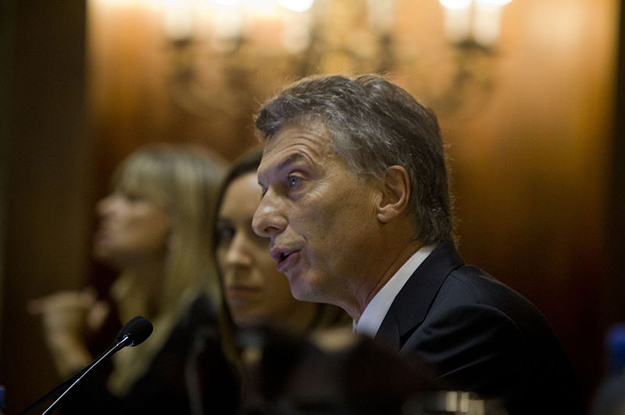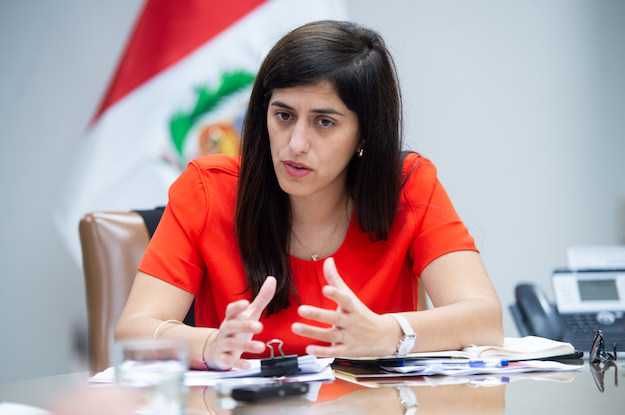With the use of plea bargaining, a Brazilian legal team has recovered $785 million stolen in the Lava Jato (Car Wash) corruption scandal, and they’re hunting down another $5.9 billion.
You can’t blame Argentina for wanting to use the controversial legal tool to see what it can recoup, too.
Inspired by Brazil, Argentine President Mauricio Macri is laying the framework for his country’s judiciary to expand its use of plea bargaining, which allows a prosecutor to offer criminal suspects the “bargain” of a lighter sentence in exchange for a “plea,” or admission of wrongdoing, that often includes information to help prosecutors further their investigations. On March 1, Macri’s administration pushed Congress to pass a new law known as the Ley del Arrepentido (Law of the Repentant) before the end of 2016.
The legislation highlights how Brazil’s unprecedented corruption crackdown is changing the legal and political landscape not just in Brazil, but also around Latin America. On track to be the largest-ever corruption scandal in dollar terms, Lava Jato is rattling beyond Brazil’s halls of business and power to influence international law.
“The Ley del Arrepentido is a tool that has proved useful in Brazil,” Argentina’s Minister of Justice and Human Rights, Germán Garavano, said in a March 22 radio interview. “It is a tool to be used, if passed into law, with caution and the establishment of certain requirements and conditions.”
Argentina already allows plea bargaining under limited circumstances. A law passed in 2000 permitted it for cases of terrorism, drug trafficking, kidnapping and human trafficking. But legal officials say it may now prove beneficial in prosecuting white-collar crime, especially as investigators uncover evidence that Argentine companies were involved in the Lava Jato scandal, which centers around a money laundering scheme at Brazil’s state oil company Petrobras.
In mid-March, an Argentine judge opened an investigation into nearly 100 companies – many of Brazilian origin – on suspicion of replicating a Lava Jato-style kickbacks and money laundering scheme in Argentina. Among the evidence so far is plea bargain testimony from Petrobras’ former international director Nestor Cerveró, who said that $100 million in bribes exchanged hands during Petrobras’ 2002 purchase of Argentine oil company Pérez Companc. He also implicated Argentina’s former Planning Minister Julio de Vido, in a deal where Cerveró pocketed $300,000 during Petrobras’ 2006 sale of Argentine power transmission company Transener S.A.
Such investigations will be easier to pursue if Argentina’s prosecutors are also allowed to use plea bargaining, argues Fernando Basch, a law professor at the University of Palermo in Buenos Aires, who expects the Ley del Arrepentido to change how business is done in Argentina. While some plea bargain testimony in Brazil has been disregarded because prosecutors could not substantiate the claims, Basch highlights how the tactic has helped Brazil’s judges uncover the criminal path to collect corroborating evidence.
“This law was a campaign promise of Macri,” Basch told AQ, adding that the bill has wide political support from parties in Congress. “Public opinion has pushed for this and I think we will see it approved during this year.”
But there may yet be pushback. Plea bargaining has been controversial in Brazil for allowing informants to drastically reduce their prison sentences. Thirteen suspects in the Lava Jato case who were initially given nearly 283 years in prison had their sentences reduced to a maximum total of 6 years and 11 months – appearing as though criminals are getting off the hook and operating with impunity.
Ricardo Monner Sans, a prominent Argentine lawyer and anti-corruption activist, worries the tactic could lead to extortion or false testimony from criminals who are, perhaps by definition, willing to abuse the legal system to get ahead. He says Argentina should look to other legal systems for examples of the effective implementation of a tool that, he admits, can be “very useful for judicial purposes.”
In announcing the push to expand plea bargaining earlier this year, Laura Alonso, who heads Argentina’s Anti-Corruption Office, noted that Argentina ranks 107 out of 175 in Transparency International’s annual Corruption Perceptions Index, far behind neighboring Uruguay (21), Chile (23), and Brazil (76).
“The government has the opportunity to reverse this trend,” Alonso told lawmakers, “and we hope that legislators will understand that this is a necessity for the nation.”
—
Vieira is a freelance reporter based in Porto Alegre, Brazil, and Buenos Aires, Argentina.







